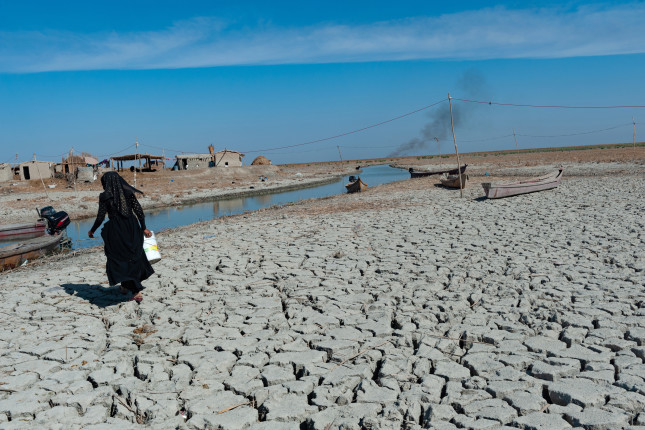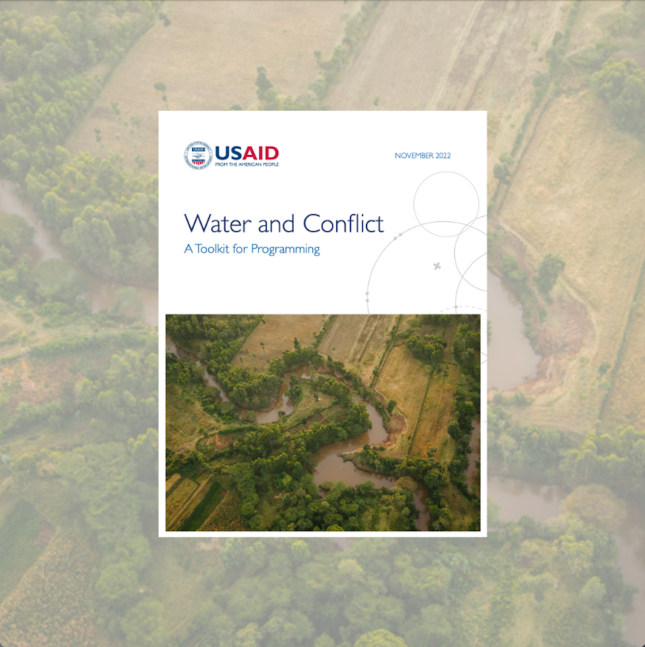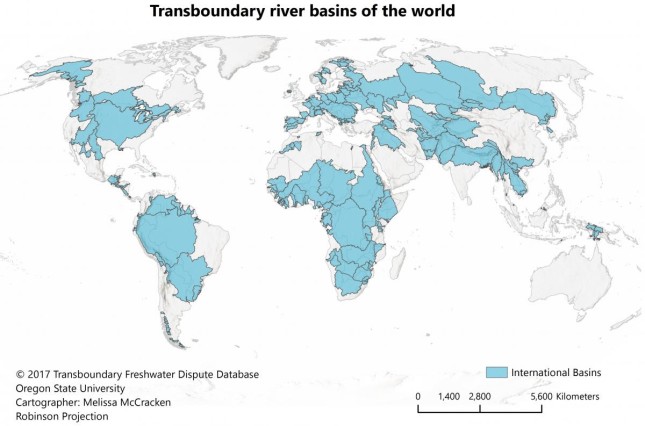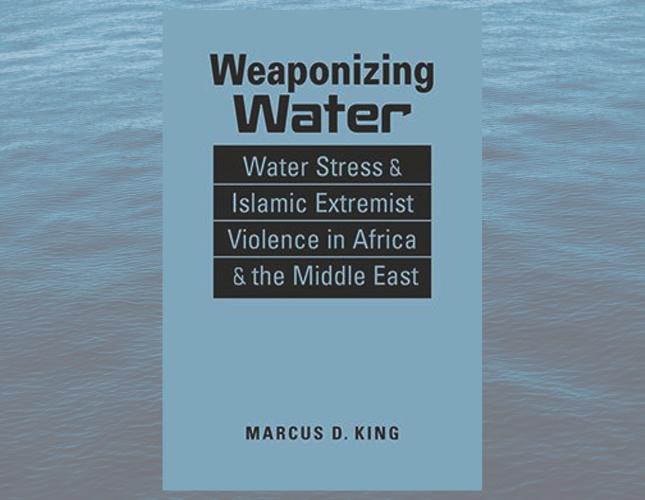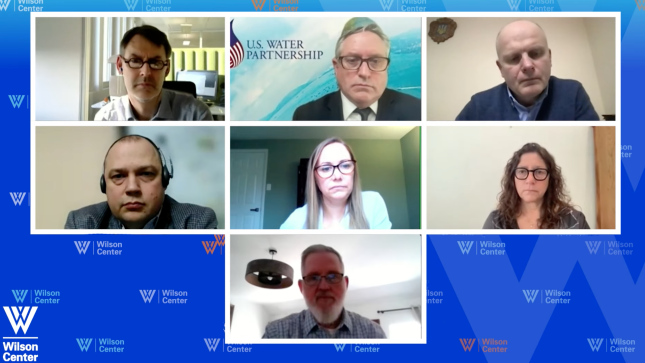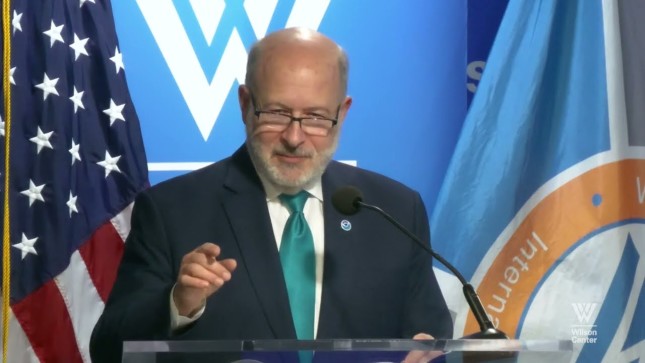-
How is Climate Change Affecting MENA? Local Experts Weigh In
›From the Wilson Center // April 21, 2023 // By Khalil Abu Allan, Eslam A. Hassanein, Gokce Sencan & Neeshad ShafiFor Earth Day 2023, members of the Agents of Change Youth Fellowship answered this question: What is the biggest environmental or climate change related challenge facing your community today? Their responses reveal a pattern of vulnerability facing the MENA region.
-
USAID’s Revised Water and Conflict Toolkit
›
Links between water and conflict seem to crop up everywhere one looks these days. The Horn of Africa will soon face a sixth consecutive failed rainy season in 2023—its worst drought on record. Not only is this drought a consequence of global climate change, but it has also led to widespread food shortages and local civil conflicts. And over the past year in Ukraine, Russian troops have directly damaged that nation’s already vulnerable water systems, including pipelines, pumping stations, and treatment facilities. These repeated attacks on water infrastructure have not only undermined local livelihoods in Ukraine, but they have also polluted surface waters and threatened biodiversity.
-
The UN Water Conference and Latin American Transboundary Waters: A Case for Better Governance
›
In recent decades, the international system has undergone profound changes—especially in terms of the types of threats that destabilize international peace and security. As new threats emerge, a focus on new dimensions of the concept of security is now reaching the top of the international agenda. In this context, the global freshwater crisis is beginning to be perceived as an existential threat to states requiring extraordinary measures to alleviate or solve the problem.
-
Tracking Conflict and Cooperation Over the World’s International Freshwater Resources
›Guest Contributor // March 20, 2023 // By Alexandra Caplan, Melissa McCracken, Susanne Schmeier, Zoe Rosenblum & Aaron Wolf
Waters that cross international political borders can drive the countries that share them to conflict—or encourage cooperation between them. Indeed, since the 1940s, overall trends point to a tendency for countries to cooperate over shared water resources, which stands in stark contrast to media portrayals of “water wars.”
Yet instances of conflict over water have increased slightly since 2000. Why? Most of them are fueled by water quantity disputes or the unilateral development of dams or other infrastructure. Institutions often play a key role in facilitating cooperation (and reducing conflict) over shared waters, but their growth and adoption have slowed over the last two to three decades.
-
Book Preview: “Weaponizing Water” by Marcus D. King
›By 2050, two-thirds of the population will face some form of water stress. As a fundamental part of life, water—or a lack of it—influences other parts of life, including conflict. In fact, as author Marcus King notes in his new book, Weaponizing Water: Water Stress and Islamic Extremist Violence in Africa and the Middle East, there is a “correlation between the spheres of influence of violent extremist organizations (VEOs) and the driest lands or areas of sparse vegetation in some of the most arid regions on earth.”
-
Water and Conflict: Updates from the Russia-Ukraine War
›
The first anniversary of Russia’s invasion of Ukraine is also a reminder of the long-term challenges faced by that embattled country, including one of the most important resources for human survival: water.
“For Ukrainians, water has been under fire for nearly a decade,” observed Erika Weinthal, Professor of Environmental Policy and Public Policy at Duke University, at a recent Water @ Wilson Series event: “Water and Conflict: Updates from the Russia-Ukraine War,” co-hosted by the U.S. Water Partnership.
-
New Security Broadcast | US Climate Envoy John Kerry on the Importance of Our Oceans
› It is fully within our power to guarantee a healthy ocean and protect it for the future, says Special Presidential Envoy for Climate John Kerry in today’s episode of the New Security Broadcast. Kerry spoke at a recent Wilson Center event hosted in partnership with the Embassy of Panama to spotlight the 8th Our Oceans Conference, scheduled to take place in March in Panama. In his remarks, Kerry emphasized the vital role the ocean plays in supporting global food security and economic prosperity as well as the imperative to take action to protect the ocean from climate change.
It is fully within our power to guarantee a healthy ocean and protect it for the future, says Special Presidential Envoy for Climate John Kerry in today’s episode of the New Security Broadcast. Kerry spoke at a recent Wilson Center event hosted in partnership with the Embassy of Panama to spotlight the 8th Our Oceans Conference, scheduled to take place in March in Panama. In his remarks, Kerry emphasized the vital role the ocean plays in supporting global food security and economic prosperity as well as the imperative to take action to protect the ocean from climate change. -
Water @ Wilson Event | Water, Peace, & Security: New Tools for a New Climate
›Water sustains life on our planet. And access to clean and safe water is foundational to society. So why has it only been in recent years that water has risen to the top of discussions of climate and security? Richard W. Spinrad, the Under Secretary of Commerce for Oceans and Atmosphere and NOAA Administrator, says that one of the biggest reasons is the major impact that climate-related changes in precipitation like droughts and extreme rainfall are having across the globe: “We’re starting to see things like we’ve never seen before. The nature of storms is changing: We saw five feet of rain fall in Hurricane Harvey. Five feet.”
Showing posts from category water.


